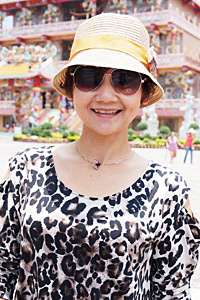As a new wave of the global pandemic creates growing urgency in many parts of the world, Covid-19 vaccines have been in short supply. Only a handful of rich economies, among them the US and European countries, along with China, have secured sufficient supplies for their domestic vaccination programmes.
Even India, home to the world's largest vaccine producer, is facing a major domestic shortage as the country's vaccination drive, which began in early January, is faltering.
As new Covid cases continue to skyrocket, the country's drug regulator has cleared the way for imports including Russian-made Sputnik V, the first foreign vaccine approved in India.
A research paper published in mid-April indicated that just 10 nations with less than half the world's population are administering three-quarters of all Covid vaccine doses. The poorest countries have barely begun vaccinating due to lack of funding and supply. The US alone is expected to have at least 300 million excess doses by the end of July.
Confirmed purchases of vaccines globally cover 8.6 billion doses. High-income countries, with a population of 1.2 billion (16% of the world total), account for 4.6 billion doses or 53%, while low-income countries hold just 770 million doses. And even if Covax, the global vaccine programme, were to be fully funded this year, only 20-25% of the people in the world's 92 poorest countries would receive jabs.
At the current rate, these countries may not reach 60% coverage until 2023 or later. That sounds desperate in my view, as the virus is continuing to circulate and new variants are emerging, threatening the global economic recovery and all walks of life.
Public health experts and economists have argued that vaccines and critical-care medicines are "global goods" to which everyone should have access. Now is the time for an effective plan for distributing excess doses as they become available.
"Vaccine policy is economic policy because the global economic recovery cannot be sustained unless we find a way to get equitable access to vaccines, therapeutics, and diagnostics," Ngozi Okonjo-Iweala, director-general of the World Trade Organization (WTO) declared last Thursday.
How we approach the Covid response is the "moral and economic issue of our time", she said.
There is some good news, though. US President Joe Biden on the same day threw his support behind waiving intellectual property rights for Covid vaccines if it would lead to faster and more equitable distribution. The European Union and China have signalled their support for discussions at the WTO of a temporary waiver, but Germany opposes the idea.
Not surprisingly, Big Pharma has warned that the proposal would set a bad precedent, stifle innovation and would not speed up production as Mr Biden has claimed.
In Thailand, meanwhile, the government has failed to calm the public's concerns about the side effects of Covid vaccines. That has deterred many elderly residents and people with pre-existing conditions -- the initial targeted groups in addition to healthcare professionals and people in the healthcare sector -- from taking part in the government-funded programme.
My own 73-year-old mother, who has diabetes and high blood pressure, is among those who is worried amid reports of people showing adverse reactions following vaccination.
At the same time, the messaging from the government about vaccines for foreigners and expats has been confusing. The issue of foreigners being able to access vaccines in Thailand is further complicated by the government's refusal to allow private companies or hospitals to independently import doses, after changing its mind several times.
We got some clarity on Thursday when Opas Kankawinpong, head of the Disease Control Department at the Ministry of Public Health, declared that the 3 million foreigners living in Thailand would be included in the mass vaccination programme to protect the entire population. "No one is safe until everyone is safe," he said, and I totally agree.
Also encouraging was the decision by the National Health Security Office to offer compensation for adverse events following Covid vaccinations, ranging from persistent illnesses to death. This is vital, I think, to encourage more of the public to participate.
Greater vaccine access is a global challenge and in the case of Thailand, the slow vaccine rollout has started to anger the public. Communicating clearly and effectively with the public in a timely manner is critical, as the number of people who have lost faith is growing. Strong leadership will help as well.
